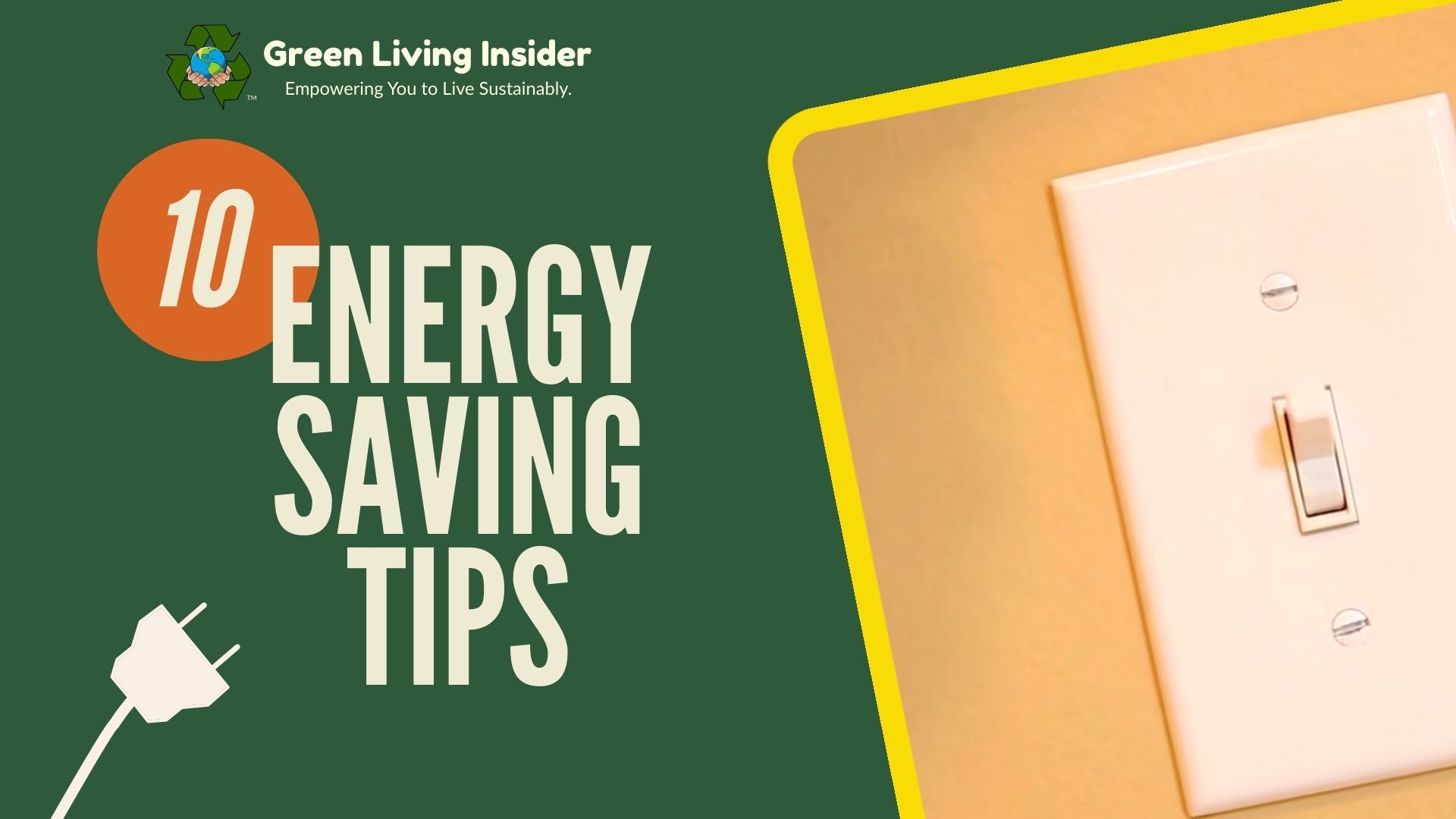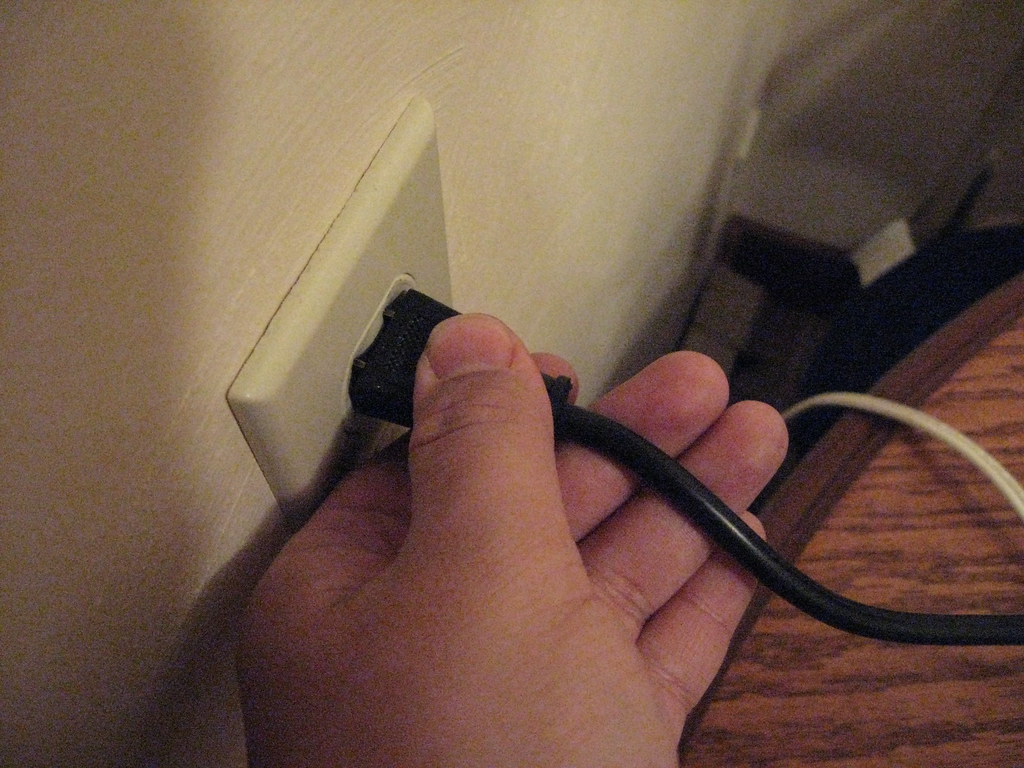Wondering how to save money on energy bills?
Electricity bills are usually among the highest expenses. With the rising cost of living, finding ways to lower utility bills can help ease monthly financial strain.
Luckily, saving energy doesn’t have to be complicated, expensive, or time-consuming. With just a few adjustments to your daily habits, you can considerably reduce energy consumption, save money on energy bills, and contribute to a healthier planet.
Saving on Energy Bills is Always Good!
Below, you’ll find 12 easy examples of how people are saving money on energy bills. We’ve compiled simple yet effective tips you can implement today.
So, let’s dive in!

1. Conduct an Energy Audit
Start by understanding your home’s energy consumption.
Track your energy use to identify which appliances or areas consume the most. Once you know this, finding effective ways to reduce your home’s energy consumption will be easier. An energy audit can also reveal areas where you might be wasting energy and help you improve efficiency. While you can hire a professional home energy auditor to do this, you could also learn how to conduct a DIY home energy audit.
With these insights, you can make smarter decisions to save money on energy bills.
2. Adjust Your Thermostat
Setting the right temperature on your thermostat is an excellent example of energy conservation. It can help you lower your energy bills by up to 10% annually.
During winter, try lowering your thermostat by just a few degrees. You could wear sweaters to see if you find this change in temperature comfortable. Similarly, you can set a higher temperature during the summer to keep your space cool enough without consuming too much energy.
You can also invest in a programmable or smart thermostat, which automatically adjusts the temperature based on your schedule and preferences.

Save up to 26% per year on HVAC costs. It automatically adjusts the temperature when you’re away.
3. Lower Your Hot Water Temperature
Is your water always too hot when you turn on the faucet? Then, you can save money on energy bills by lowering your water heater temperature. This is a fantastic example of conserving energy without disrupting your daily activities.
Water heaters are usually set to a default temperature of 140ºF. However, you can lower it to 120ºF and maintain a warm, safe temperature while reducing energy costs. With this simple change, you can save up to $400 annually!
Want to lower your utility costs even more? Be mindful of your water usage by taking shorter showers, turning off the faucet while brushing your teeth, and only running the dishwasher and washing machine when complete.

4. Unplug Devices When Not in Use
Did you know that some electrical appliances still consume energy even when turned off?
These devices are often called “energy vampires” because they continuously suck up electricity when left on standby. If you want to cut your energy bills, unplug devices like chargers, TVs, and computers when not in use.
To make this task easier, consider using smart power strips. These strips automatically cut off the electricity to devices you’re not using, helping you save energy and money.
5. Use Energy-Saving Light Bulbs
Another good way to conserve energy at home is to use energy-efficient light bulbs. LED bulbs consume 90% less energy than traditional incandescent bulbs and last up to 25 times longer. Not only will they help you save money on energy bills, but they will also reduce the need for frequent replacements!
According to the U.S. Department of Energy, switching to LED lighting could save up to $225 per year on energy costs.

WiZ works with your existing Wi-Fi router. No additional gateway is needed.
6. Opt for Natural Light
A simple way to lower your energy bills is to turn off your lights whenever you leave a room. There’s no need to keep the lights on if no one will be there, right?
During the day, you can take advantage of natural sunlight. Open your curtains or blinds to let in the sunlight, and only turn on artificial lighting when necessary.
Every energy-saving habit, like using natural light, adds up and brings you closer to the goal of saving money on your energy bills.

7. Wash Clothes in Cold Water
On laundry days, washing your clothes in cold water is best. Heating water requires considerable energy, and washing your clothes in cold water can significantly reduce energy consumption and electricity bills.
In case you didn’t know, cold water is also gentler on clothes. This energy conservation example can also make your clothes last longer, saving you even more money in the long run!
8. Hang Clothes to Dry
Depending on the model of your clothes dryer, it can consume anywhere from 1800 to 5000 watts of energy. This is the amount of energy you could save each time you avoid using it.
During the summer, hang your clothes outdoors or on an indoor rack instead of using your dryer. You’ll be surprised at how quickly your clothes dry on hot days without needing a clothes dryer. This simple step can cut energy costs and reduce your carbon footprint. Plus, it’s gentler on your clothes and can help them last longer!
9. Conserve Energy in the Kitchen
There are many simple ways to save energy in the kitchen, too.
For instance, always try to use the right-sized pots for your burners and keep lids on to retain heat. This will help you cook your food faster and use less energy. You can also lower your energy bills using a microwave, slow cooker, air fryer, or toaster oven instead of your full-sized oven. Similarly, boiling water with an electric kettle is more energy-efficient than using a stove or microwave.

10. Insulate Your Home
One of the best examples of energy conservation is insulating your home. Proper insulation is crucial for maintaining a comfortable temperature in your home, keeping it cool in the summer and warm in the winter. Sealing gaps around doors and windows is vital to prevent heat loss and lower your energy bills.
These energy-saving tips will help reduce your heating and cooling costs, as your HVAC system won’t have to work as hard to maintain the desired temperature.
11. Perform Regular Home Maintenance
You should perform regular home maintenance to save money on energy bills. Believe it or not, regular maintenance is cheaper than waiting until something fails.
Regular maintenance ensures your appliances and HVAC systems work smoothly while using energy efficiently. It also helps you avoid expensive repairs and extends the lifespan of your appliances and systems. Simple maintenance tasks can lower utility bills and make your home a more comfortable living space.
12. Use Energy-Efficient Appliances
Need to replace old or damaged appliances?
Look for energy-efficient models with the ENERGY STAR label. These products consume less energy than conventional options without sacrificing performance. Therefore, they can help you save money on electricity bills and reduce your environmental impact. While some have a higher upfront cost, they’ll quickly pay off through utility bill savings.
You can find multiple ENERGY STAR-certified products, including clothes dryers, washing machines, dishwashers, refrigerators, computers, tablets, and televisions.
Wrapping Up
Conserving energy not only fights climate change and reduces air pollution, it can also help you save money every month. Luckily, there are many easy energy conservation examples — as the ones mentioned above — that you can implement right away.
Incorporating these tips into your daily routine can positively impact the environment and help you save money on energy bills. Remember, every small action adds up, and together, we can create a more sustainable future for ourselves and future generations.
Saving money on energy bills? Share your best tips in the comments.
For extra weekly inspiration, subscribe today to get green tips and exclusive content delivered to your inbox!





